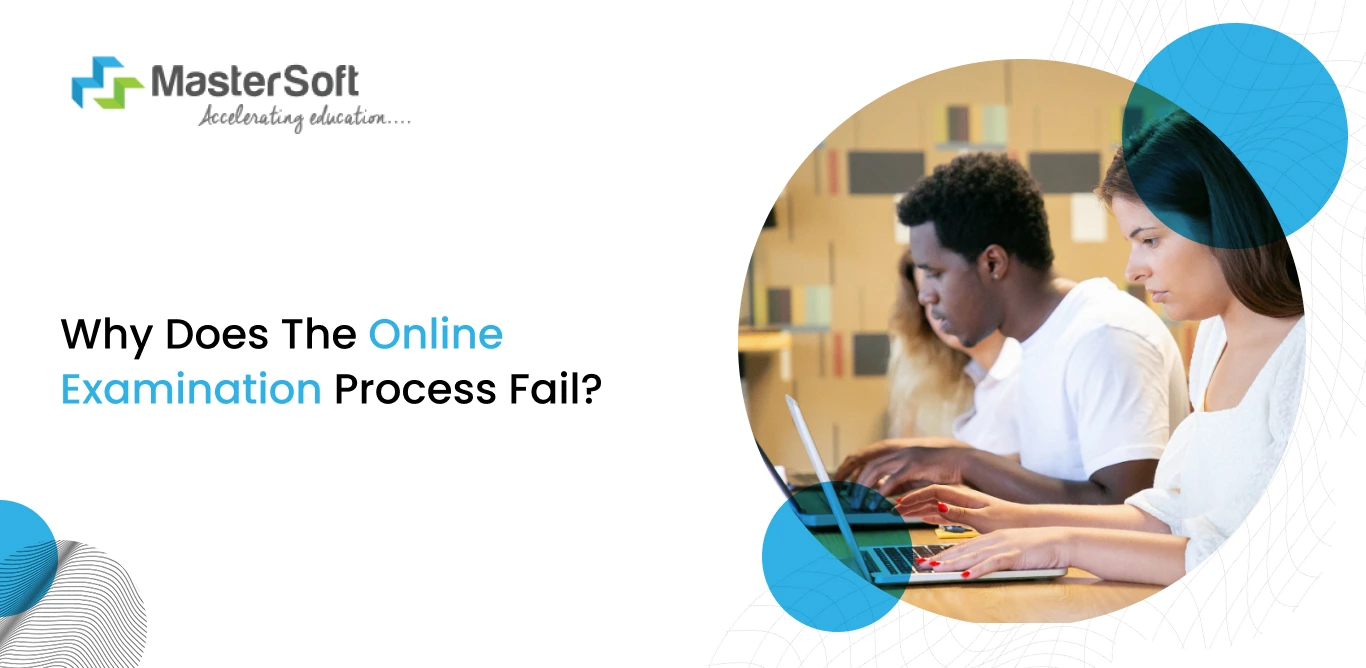17, Oct 2022
Due to the pandemic, the offline examination system was difficult to execute due to nationwide lockdown and the fear of the spread of infection. Thus, many schools and colleges opted for various media to conduct exams.
There was confusion among academicians about choosing a suitable software or device to safely and securely perform assessments. The majority of the institutes that lacked direction selected subpar software with minimal protection.
Pen and paper-based exams are being shifted to online assessment. Technology is gaining impetus in the educational sector as it can help enhance the overall academic processes, improve student learning outcomes, and thereby ensure that the quality of education is improved for all stakeholders.
Online examinations are the current norm and going back to the offline examination mode is not ideal at this stage as it has proven a boon to the educational institutes. However, there have been a few instances where the online test platform has had several issues that affected the examination process and created insecurity among staff, students, and teachers.
Major Key Challenges to Manage Online Exam Process
When it comes to internet connectivity, many educational institutes are hesitant to adopt the online mode of examination.
Some of the issues which can negatively affect the examination process include:

1. Security Issues
The biggest concern with an online exam is security. There is a high chance of data theft and scores of students being tampered with. Educational institutions must keep their questionnaires, student data, study materials, and related documents up-to-date and secure. In some cases, unauthorized individuals gain access to data at the institute.
To prevent this, the school or college requires a high level of security throughout the examination phase. They need to preserve their data in an encrypted manner in a cloud database and offer accessibility security for their files by using a strong password and limiting access to the data. They can safely, easily, and securely protect the online test process by adopting multi-layered encryption software.
2. Poor Staff Training
Today’s students have easy access to technology and are better equipped to use it to their advantage. This is not the case with the faculty and admin staff, who are not tech-savvy and have a hard time understanding the software and its operation. The staff needs sufficient time and training for smooth operation of the system.
Also, students should be given proper training regarding software operations. With poor and neglected training, many students are confused about logging access to the software during the exam, which can affect their performance. Therefore, prioritizing training before tests must be a top priority.
3. Difficulty Using the System
The overall setup of the software can be easy to use, but there might be a few sections where the faculty and students can face issues handling the system. Examiners should be clear about how they wish to conduct a test via the internet, such as MCQs, quizzes, audio/video tests, etc.
The faculty must initially set up the exams at an easy level, then move on to the more difficult steps. Consequently, the students never lose confidence in themselves or become distracted from the exams, and thus can achieve better learning outcomes.
4. Failing to Provide Mock Exams
The pen-and-paper mode of exams had the concept of providing mock exams a few weeks before the final exam to enable students to get a hands-on experience of the real assessment. Since the online assessment mode, there has been less focus on giving mock exams, and only a few institutes offer mock tests to their students. As a result, the candidates have no idea which type of question format the online software will have or how to operate or submit the test.
To prevent such situations, the software must be equipped with a mock test feature that can be then adopted by the institute.
5. Not Focusing on the Auditing Process
The examiner is new to using the technology while using the internet to operate the software. They require the auditing process to gain valuable results. During the auditing process, the examiner gains a fair understanding of how comfortable the students are with the system, whether the software generates error-free results, how the exams help students improve, exam's scheduled time and ending time, etc. However, few institutes ignore the auditing process.
Consequently, they are bound to deal with negative outcomes, and they have no idea how to calculate the results of genuine tests, failing to effectively assess the candidates.
6. Internet Connectivity Issue
As the assessments are conducted online, they require a good internet connection. The connectivity is not constant all the time. Hence, if there is any loss of connectivity, there is a high chance of the entire exam failing if there is no backup, which can affect the student’s ability to perform in the exam.
7. Lack of Comfort
Not every student can adjust themselves to the online examination environment, either financially, mentally, or physically. Some of the students don’t have access to bigger screens to better view the lengthy and graphical questions. Also, some of them lack the process of execution.
8. Cheating Practices
With no physical invigilation, the staff is always concerned if the students are cheating at their homes while giving a test. Not all software has advanced proctoring functionality, which can make the staff carefree about students not indulging in any malpractice. Although the tests are taken on the basis of trust in the students, some of them succeed in adopting malpractices.
Solution That Makes Online Exam Process Trouble-Free
With the above issues, most institutes are reluctant to entirely switch to an online mode of examination. The above challenges can be resolved by choosing the right vendor and implementing cloud-based software that maintains the highest security standards. MasterSoft is one such ERP solution provider, who curates time-tested products in compliance with the current industry standards.
MasterSoft’s Online Examination System can be used to conduct error-free and unbiased exams with advanced online invigilation capabilities. With the help of this software, you can conduct all types of online exams for students in a proctored environment, including:
- Semester Exams
- Entrance Exams
- Mock Tests
- Tuition Class Evaluations
- Annual Exams
- MCQs
- Descriptive Tests

How MasterSoft Prevents Cheating in Online Exams for Students
- Verify the Candidate’s Identity
- Create Questions Which Require Higher-Order Thinking
- Use Different Sets of Paper/Give Shuffled Questions to Every Student
- Advanced Proctoring
- Use Different Types of Questions
- Disable Other Applications and Browsers During Exams.

Online test platform offers myriad benefits in terms of lower overhead costs, examination process simplification, and ease of result processing. It can further save on the rent of the exam hall, the invigilator’s fee, printing costs, and administration costs. However, if the institute does not keep the above issues in mind, the online examination process can be relatively less effective. Many schools, colleges, and universities have implemented online assessment software in a hurry without taking the aforementioned concerns into account.
Thus, the online examination system can be a boon if used wisely and securely.
Secure and Robust Examination Management System for Seamless Exam Conduction!
Mobile: 08448010216
Email: janki.somani@iitms.co.in













